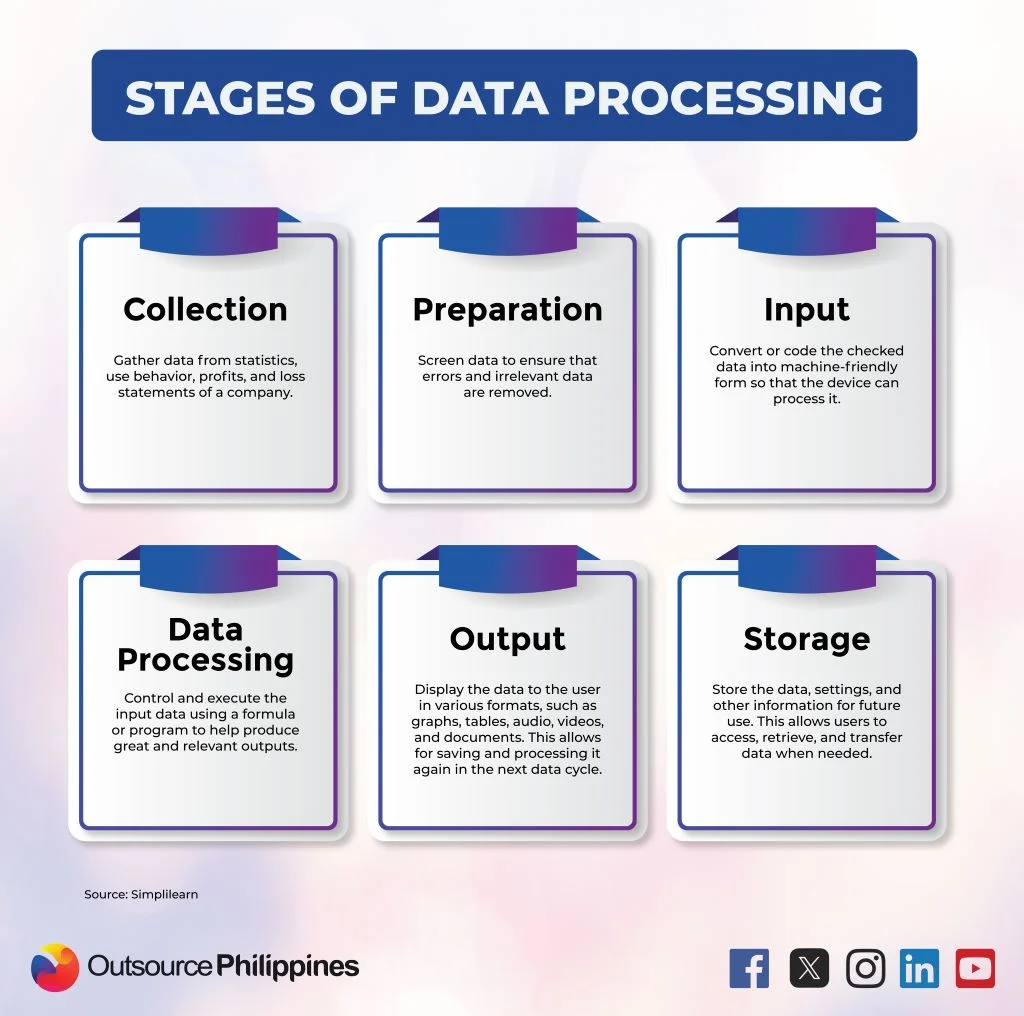In today’s fast-paced digital landscape, data has become the driving force behind business success. With the advent of big data, organizations now have access to an unprecedented amount of information that can be harnessed to make informed decisions and gain a competitive edge. However, the true power of big data lies in its processing and analysis. This is where businesses can unlock invaluable insights, identify trends, and discover hidden opportunities.
In this article, we will explore the transformative potential of data processing and how you can use it to drive business success. From understanding customer behavior to optimizing operations, we will delve into the various ways in which businesses can harness the power of big data and turn it into a strategic asset. Join us on this journey as we unlock the secrets of data processing and empower your organization to thrive in the data-driven era.

The Importance of Leveraging Big Data for Business Success
One of the key benefits of using big data is the ability to gain actionable insights. By analyzing large datasets, businesses can identify patterns, trends, and correlations that may not be apparent through traditional methods. For example, retailers can use data to analyze customer purchasing behavior and personalize marketing campaigns to target specific customer segments. This targeted approach can increase not only conversion rates, but also customer satisfaction.
Another important aspect of taking advantage of big data is the ability to optimize operations. By analyzing data from various sources, businesses can identify inefficiencies and bottlenecks in their processes. For instance, a manufacturing company can use data to monitor production lines in real-time and identify potential issues before they lead to downtime or quality problems. This proactive approach can lead to cost savings and improved productivity.
In addition to customer insights and operational optimization, big data can also drive innovation. By analyzing external data sources, such as industry trends and competitor data, businesses can identify new market opportunities and develop innovative products and services.
Overall, making use of big data is crucial for businesses that want to stay competitive in today’s data-driven world. It enables organizations to make data-driven decisions, gain a competitive edge, and drive business success.

Download the Stages of Data Processing infographic here.
Understanding the Challenges of Data Processing
While big data offers immense opportunities, it also comes with its fair share of challenges, particularly when it comes to data processing. Processing large volumes of data requires powerful computing infrastructure and sophisticated algorithms. Additionally, it often involves cleaning and transforming data to ensure accuracy and consistency.
One of the main challenges in processing data is the sheer volume of data. With the exponential growth of data, businesses need to have the infrastructure and resources in place to effectively process and analyze large datasets. This requires investments in hardware, software, and skilled professionals who can handle the complexities of it.
Another challenge is the variety and complication of data. Big data comprises structured, semi-structured, and unstructured data from various sources. This includes text, images, videos, social media posts, and sensor data, among others. Processing such diverse data types requires advanced algorithms and tools that can handle the difficulty and extract meaningful insights.
Data Processing Techniques and Tools
Notwithstanding the challenges, businesses can overcome them with the right strategies, tools, and expertise. Let’s explore the various techniques and tools available for processing data below.
Processing data involves a range of techniques and tools that enable businesses to extract insights from raw data. These techniques can be broadly categorized into batch processing and real-time processing.
1. Batch Processing
Involves processing data in large volumes and performing computations on the entire dataset at once. This approach is suitable for scenarios where data can be processed offline or in batches, such as historical analysis and generating reports. Popular tools for batch processing include:
- Apache Hadoop and Apache Spark – provide distributed computing frameworks for processing large datasets across clusters of computers.
2. Real-time Processing
Enables businesses to process and analyze data as it arrives, allowing for immediate insights and actions. This approach is ideal for scenarios that require timely decision-making, such as fraud detection and real-time recommendations.
- Apache Kafka and Apache Flink – give real-time streaming frameworks that facilitate the processing and analysis of data in real time.
3. Machine Learning Algorithms
Can automatically learn from data and make predictions or take actions without explicit programming. Popular machine learning frameworks include:
- TensorFlow and Scikit-learn – which provide a wide range of algorithms and tools for processing data and analysis.
4. Cloud-Based Solutions
Cloud platforms offer scalable and cost-effective resources for processing and analyzing big data. Platforms like:
- Amazon Web Services (AWS) and Google Cloud Platform (GCP) – offer a range of services, such as data storage, processing, and analytics, that enable businesses to use big data without the need for extensive infrastructure investments.
Best Practices for Data Processing
To ensure successful data processing, businesses should follow best practices that maximize the value and reliability of the processed data. Here are some key best practices to consider:
1. Define clear objectives.
Before embarking on a data processing initiative, businesses should be clear and specific with the insights or outcomes they want to achieve. This will help guide the efforts and ensure that the processed data aligns with business goals.
2. Clean and transform data.
Data cleaning and transformation are crucial steps in processing data. Businesses should invest in data quality tools and techniques that can identify and rectify data errors, inconsistencies, and missing values. Additionally, data should be transformed into a standardized format to ensure consistency and compatibility across different datasets.

3. Ensure data security and privacy.
Data security and privacy are paramount in processing data. Businesses should implement robust security measures to protect sensitive and confidential data. These include encryption, access controls, and regular security audits. Additionally, adherence to data protection regulations, such as the General Data Protection Regulation (GDPR), should be ensured.
4. Establish data governance.
Data governance involves defining policies, processes, and standards for data management and use. Businesses should establish a data governance framework that outlines roles and responsibilities, data ownership, and data quality standards. This will ensure that data processing initiatives align with the organization’s data strategy and comply with regulatory requirements.
5. Foster a data-driven culture.
Processing data should be seen as a strategic business initiative rather than a technical task. Businesses should foster a data-driven culture that values and utilizes data across all levels of the organization. This includes providing training and education on data literacy, promoting data-driven decision-making, and encouraging collaboration between business and technical teams.
By following these best practices, businesses can maximize the value of their data processing initiatives and drive business success.
Steps to Leverage Big Data for Business Success
To use big data for business success, organizations should follow a systematic approach. Here are the key steps to consider:
1. Identify business objectives.
Clearly define the business objectives and outcomes that you want to achieve through processing of data. This will help guide your efforts and ensure that they align with your organization’s strategic priorities.
2. Define data requirements.
Identify the types of data relevant to your business objectives, including both internal and external data sources. Internal data sources may include customer data, sales data, and operational data; while external data sources may include social media data, industry reports, and competitor data.
3. Assess data readiness.
Evaluate the quality, completeness, and consistency of your data. This involves conducting a data audit to identify any data gaps, errors, or inconsistencies. Data cleaning and transformation techniques should be employed to ensure the accuracy and reliability of the data.
4. Invest in data infrastructure.
Ensure that you have the necessary computing infrastructure and tools to process and analyze big data. This may include investing in cloud-based solutions, distributed computing frameworks, and processing data tools. Consider the scalability, performance, and cost-effectiveness of the infrastructure options.
5. Develop data processing workflows.
Design and implement processing data workflows that enable you to process, transform, and analyze your data. This may entail using techniques such as batch processing, real-time processing, and machine learning algorithms. Consider the specific requirements of your business objectives and choose the appropriate techniques and tools.
6. Monitor and evaluate.
Continuously monitor and evaluate the outcomes of your data processing initiatives. This encompasses measuring key performance indicators (KPIs) and assessing the impact of processing data on your business objectives. Use the insights gained from the evaluation to refine and improve your data processing workflows.

Hire Top Data Processing Professionals by Working with Outsource-Philippines
A good data processing plan must be implemented with specific knowledge and abilities. Employing experts or contracting with outside sources are two options available to organizations. By working with Outsource-Philippines, you can take advantage of in-house knowledge and affordable, flexible, and scalable processing of data. We also offer data privacy and security.
Partner with Outsource-Philippines for targeted business solutions now! Let us do your data processing tasks for you through our back-office outsourcing. Learn how we can help your company reach new heights by requesting a free quote right away!












